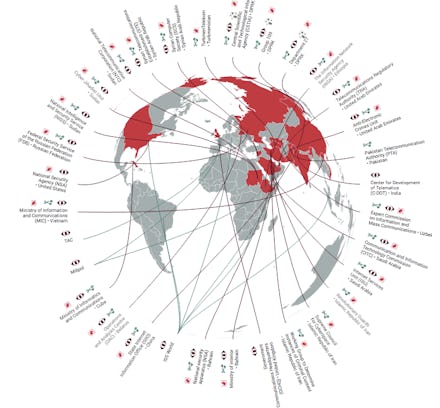You Probably Live in One of the 20 Worst Countries for Internet Censorship

While press freedom seems to be in a troubling downward trajectory in the U.S., Internet freedom is not looking much better either.
Reporters Without Borders recently announced its annual "Enemies of the Internet" list, and it is a real doozy this year. There are some of the usual suspects — China, Sudan, Iran, North Korea and Cuba — but there are also a few surprising additions to the list — especially the U.S. and the U.K.
Take a look at the map below:
Image Credit: Reporters Without Borders
Reporters Without Borders did not name entire governments on its list, but rather focused on the individual agencies that censor the Internet. Last year's revelations regarding the National Security Agency (NSA)'s spying schemes have landed the U.S. on the list for the first time. NSA whistleblower Edward Snowden's leaks regarding the Government Communications Headquarters (GCHQ) have also introduced the U.K. agency to the list for the same reasons.
"The NSA and GCHQ have spied on the communications of millions of citizens including many journalists. They have knowingly introduced security flaws into devices and software used to transmit requests on the Internet. And they have hacked into the very heart of the Internet using programmes such as the NSA’s Quantam Insert and GCHQ's Tempora. The Internet was a collective resource that the NSA and GCHQ turned into a weapon in the service of special interests, in the process flouting freedom of information, freedom of expression and the right to privacy," the report said.
It added that the NSA and GCHQ's surveillance operations were all the more troubling because they were located in "democracies that have traditionally claimed to respect fundamental freedoms"; because these tactics have been so effective for the U.S. and the U.K., "they will be used and indeed are already being used by authoritarians countries such as Iran, China, Turkmenistan, Saudi Arabia and Bahrain to justify their own violations of freedom of information."
"How will so-called democratic countries be able to press for the protection of journalists if they adopt the very practices they are criticizing authoritarian regimes for?" asked the report.
Check out this interactive version of the map for a more detailed look at Internet censorship around the world.